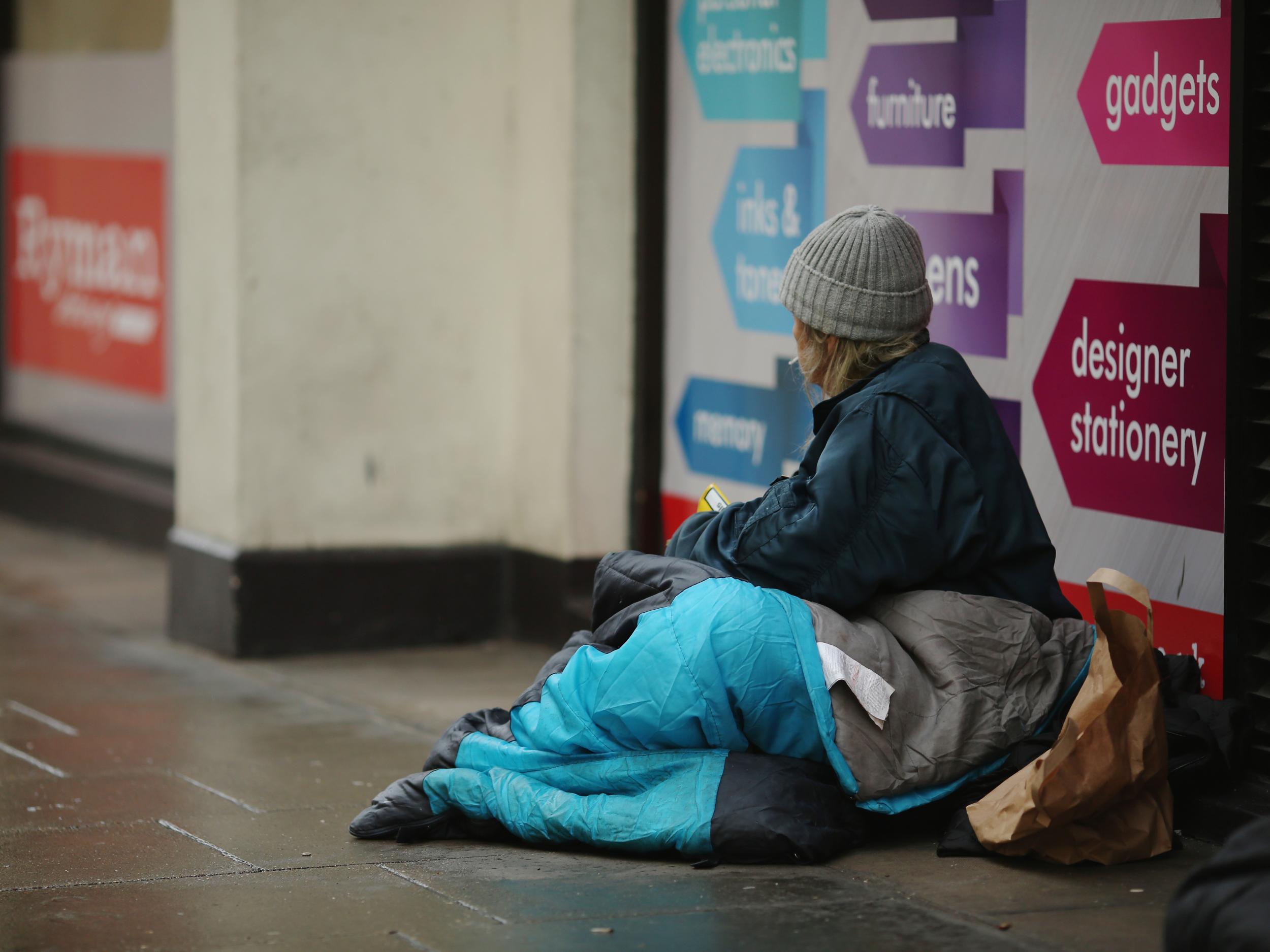True scale of female homelessness 'likely to be significantly worse than official records show'
Exclusive: Homeless women subject to 'horrendous' treatment including sexual abuse, violence and stigmatisation – driving them into underground and often out of official datasets

The true scale of female homelessness is likely to be significantly worse than official records show, as women hide to avoid being attacked, a harrowing new report reveals.
Women who sleep on the street are subject to “horrendous” treatment, including sexual abuse, violence and stigmatisation – and often feel unsafe when accessing predominantly male homelessness services, according to research by St Mungo’s.
The report warns that this drives many to hide themselves in concealed locations, such as Wendy houses, empty garages and public toilets – which in turn leads to them being omitted from administrative datasets.
Figures show female street homelessness is rising more quickly than the overall rough sleeping population, with the proportion rising from 12 per cent to 14 per cent in the year to 2017.
Welfare reforms, cuts to local authority funding and a lack of social housing, as well as a shortage of refuges to protect women fleeing domestic abuse, have been blamed for the rise.
Homelessness services can lack appropriate physically safe facilities and support for women, as they are often designed on the assumption that their target population is overwhelmingly male.
The report found that homeless women were often subjected to “horrific” violations, including being spat, urinated and vomited on, as well as being robbed and continually harassed for sex by male members of the public – all of which lead many to conceal themselves when sleeping rough.
One woman surveyed for the report told researchers: “We have to hide because if we don’t we’re gonna get raped, kicked, beat.” Another said she had hid in “Wendy houses in back gardens, sheds, empty garages, empty houses that were gonna be demolished… public toilets… wherever”.
Researchers also found barriers to domestic violence services, with women reporting they were expected to “prove” their experience of abuse by having repeated contact with the police before receiving support from the criminal justice system or local authorities.
Recent research by Women’s Aid showed that more than one in 10 women supported by the charity in the 12 months to January 2018 had been forced to sleep rough after fleeing domestic abuse, while almost half had to sofa surf – many of whom had their children with them.
Politicians and campaigners have urged central government to bring in better data collection methods and provide more women-only homelessness services, as well as better address the link between domestic abuse and rough sleeping.
Rebecca Sycamore, St Mungo’s executive director of development, said the report shone a light on the “frightening” levels of sexual harassment, abuse and violence being faced by women on the streets.
“It’s clear that we don’t have a true picture of the real extent of rough sleeping, and this leaves women at particular risk of harm,” she said.
“We want to see a dedicated effort made to find out more about women and rough sleeping, involving those with lived experience, and linking in with related work such as the government’s Violence against Women and Girls strategy.”
Melanie Onn MP, Labour’s shadow housing minister, said: “This damning report highlights just how badly the government is failing to address the specific problems that homeless women face.
“The risk of sexual assault and violence means that many homeless women avoid our streets and doorways for their own safety, and the cuts in funding for hostels and genuinely affordable homes since 2010 means that places of safety for women are far harder to come by.
“The government must now invest in new low-cost homes and properly fund support for homeless women to prevent them sleeping rough.”
Katie Ghose, chief executive of Women’s Aid, said: “No one chooses to leave their home; it is a decision made in circumstances of fear, when all other options have been exhausted.
“Yet domestic abuse survivors and children who are literally fleeing for their lives are being faced with the awful reality of sofa surfing or even sleeping rough.
“When faced with a future of insecure housing and homelessness after fleeing domestic abuse, we know that some survivors have no choice but to return to their abusive partner.”
Minister for homelessness Heather Wheeler MP said: “It is simply unacceptable that anyone has to sleep on the streets, and I recognise that women sleeping rough are even more vulnerable than men.
“That is why this government is providing additional support including frontline workers trained to support homeless domestic abuse survivors.
“We have also put bold plans in place, backed by £100m in funding, to halve rough sleeping by 2022 and end it by 2027, as part of a £1.2bn investment in tackling all forms of homelessness.”
Subscribe to Independent Premium to bookmark this article
Want to bookmark your favourite articles and stories to read or reference later? Start your Independent Premium subscription today.

Join our commenting forum
Join thought-provoking conversations, follow other Independent readers and see their replies